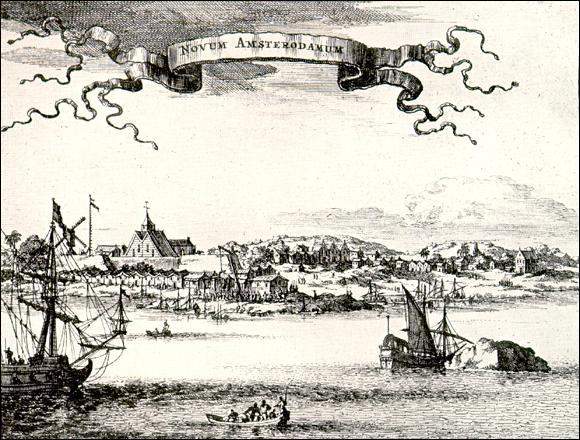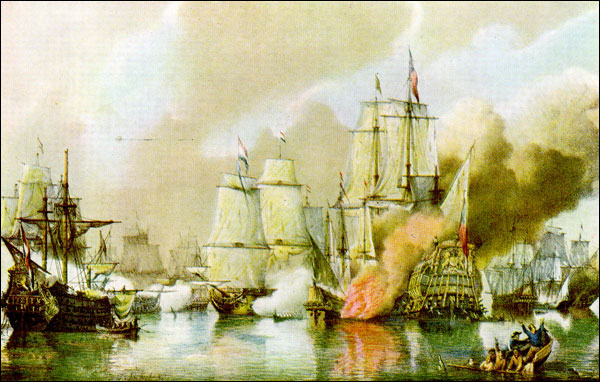The Dutch Raid on Ferryland, 1673
Between 1672 and 1674 Dutch raiders, smarting from their defeat by the English and the loss of their colonies in what is now New York, carried out a series of raids on the coast of America.

In 1673 four Dutch ships - the Green Wife, 40 guns; the Arms of Leyden, 40 guns; the Schacator, 36 guns; and the Unity, 36 guns - attacked Ferryland. Aboard one of the Dutch vessels was Dudley Lovelace, Governor of New York, and 50 soldiers who had been captured by the Dutch earlier that year. Lovelace left an account of the raid.1

The Dutch landed at Ferryland without opposition, "...the fort being out of repair, and no commander upon the place," on September 4, 1673. Once ashore they "...plundered, ruined, fired, and destroyed the commodities, cattle, household goods and other stores belonging to these inhabitants following..." He listed 14 individuals by name and "many others." Among those whose property was destroyed were Lady Kirke, her sister Lady Hopkins, and Lady Kirke's three sons, George, David and Philip.
The following day they burned 30 boats, took as much fish as their ships could carry and forced the inhabitants to send six hogs and one bullock to each ship in return for sparing most of the settlement. They also took away four "great guns," apparently not used in defence of the place.

No lives appear to have been lost during the raid and the inhabitants stayed throughout the following winter.
There is no more specific mention of the damage inflicted by the Dutch at Ferryland, but at a place three miles from Ferryland they burned, among other buildings, a warehouse. Archaeology suggests that the warehouse built by the first settlers on the Avalon waterfront was destroyed about this time, and it is difficult to escape the conclusion that this violent destruction took place during the Dutch attack.
1. Lovelace, Dudley. '[Captain] Dudley Lovelace; 29 March, 1675: An Account of the Dutch Fleet upon the Coast of Newfoundland in the year 1673.' Great Britain, Colonial Office, CO 1/34 (37), 85. MHA 16-C-2-024. Transcribed by P.E. Pope.




